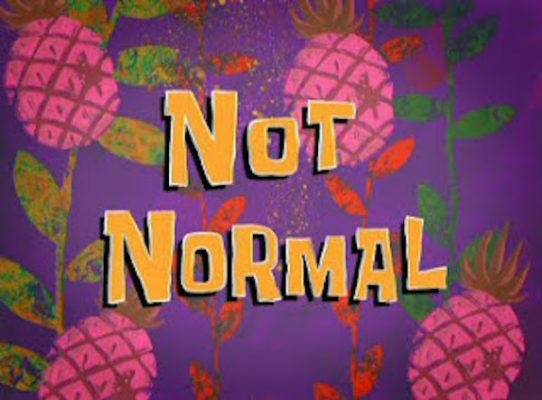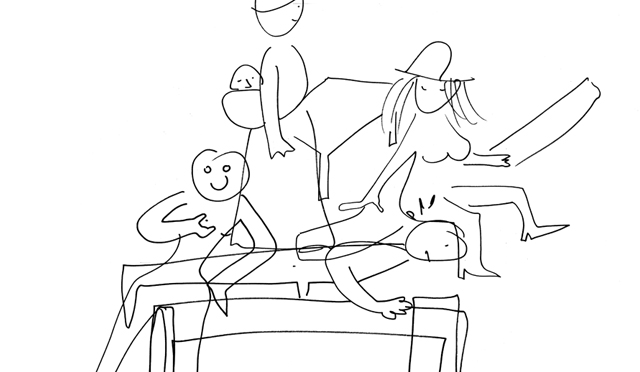Search
To search for an exact match, type the word or phrase you want in quotation marks.
A*DESK has been offering since 2002 contents about criticism and contemporary art. A*DESK has become consolidated thanks to all those who have believed in the project, all those who have followed us, debating, participating and collaborating. Many people have collaborated with A*DESK, and continue to do so. Their efforts, knowledge and belief in the project are what make it grow internationally. At A*DESK we have also generated work for over one hundred professionals in culture, from small collaborations with reviews and classes, to more prolonged and intense collaborations.
At A*DESK we believe in the need for free and universal access to culture and knowledge. We want to carry on being independent, remaining open to more ideas and opinions. If you believe in A*DESK, we need your backing to be able to continue. You can now participate in the project by supporting it. You can choose how much you want to contribute to the project.
You can decide how much you want to bring to the project.

Things happened and nobody in the world of art or art criticism said anything, at least anywhere other than the Facebook or Twitter walls. We had a pressing need to ask ourselves questions – which is what we like best – and to ask other authors to speak about it.
We pondered on the normalisation of exceptionality following the social and political events taking place in our most immediate environment, but also, in global terms, on an age in which power structures are showing symptoms of re-authoritarianism (affecting decisions in the spheres of economics, politics, ecology, security, peaceful coexistence, etc.).
In today’s accelerated rhythm of decision-making ,steps that are advertised as urgent, critical, are given preference to those that are settled with the necessary guarantees and balance of counter-powers, turning what has been imposed unilaterally into a new status quo.
Different ways of relating, travelling and being in the world, of loving and having sex are increasingly mediated by messages of urgency for motives of security, appearances, control, etc., and it will be difficult to ensure that these restrictions are withdrawn. Big brother is watching you — but not only that, you are big brother, too, now!
We began the month with an always brilliant Martí Manen in a text that often moved from the realm of the individual to the collective, leaping through time to try and understand the reason for so much exception: ‘We began to share and to explore other types of formulation beyond what is accepted. We destroyed history because the present didn’t allow itself to be destroyed, and we investigated the future as an emotional escape route too. To leave here right now yet with no idea of where to go. To leave now, to attempt to leave this continuous present that has replaced monotony with bewilderment.’
Marina Vives tried to analyse the Catalan issue (the process or the threat, according to who should be reading) weeks before the elections to the autonomous region, well aware of the tension that had been felt in Catalonia over the previous months, yet also homing in on a ruling party and a legal system full of exceptional irregularities that are being overlooked with too much impunity.
María Muñoz interviewed a lucid and necessary Franco Berardi, BIFO, who was in Barcelona briefly to present his latest book And: Phenomenology of the End, published by Caja Negra in 2017. Among other matters, they discussed – in philosophical terms – the current moment of mutation, the sense of finitude of and in contemporary society, and the bewilderment caused by ‘exceptionality’.
Last but not least, Jeffrey Schwartz signed a text in which he suggested the reasons for an active abstention, as regards both votes and ideology, in the face of a remote and corrupt system. Along the same lines, he considered the position (or lack of position) of the Catalan cultural classes and their options before a real occupation of the power and decision structures.
If that weren’t enough, we also discussed states of exception with Marina Garcés, Valentín Roma, Francesc Torres and Imma Prieto in an A*LIVE charged with reflection, held on 20 December at Escola Massana in Barcelona, documented on video and available here.
In the knowledge that the next day nothing would actually change, this collective thinking at least gave us a moment of composure to listen and speak calmly, while outside everything was still hurried and tense.

A*DESK is a critical platform focused on publishing, training, experimentation, communication and dissemination in relation to contemporary culture and art, which is defined by transversality. The starting point is contemporary art, because that is where we come from and this awareness allows us to go much further, to incorporate other disciplines and forms of thought in order debate issues that are relevant and urgent for understanding our present.
"A desk is a dangerous place from which to watch the world" (John Le Carré)